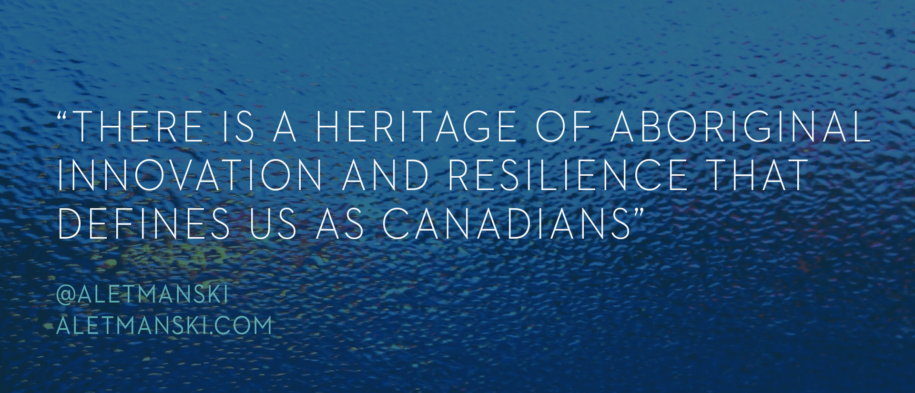A remarkable event is taking place in Winnipeg next week – Canada’s first ever Indigenous Innovation Summit.
I wasn’t certain whether I should accept the offer to participate. What could I say that would make a difference? Everything I’ve ever read about social innovation I’ve found alive and thriving in Indigenous communities. And Indigenous people hadn’t read the material! For example, consider the Gwaii Haanas Agreement. The Haida Nation grasped paradox and created something both magnificent and practical out of a seemingly unresolvable stalemate. The agreement acknowledges that the Council of Haida Nations and the Government of Canada share equal decision-making power to manage Gwaii Haanas National Reserve despite conflicting views on sovereignty. This is sheer lobbying virtuosity resulting in the unimaginable. It is easy to understand why the agreement is studied by Aboriginal people all around the world.
I had a second fear. Social innovation technologies are still new and largely untested. And like all technologies they are embedded with the values of the dominant culture. That’s the same culture, which introduced and scaled residential schools and other tools of cultural destruction. I’m part of that culture. I’m sure there were many people like me at the time who thought they were doing the right thing by pursuing a policy of assimilation.
Then I realized I was looking at this event through the fog of my cultural bias. If any group of people knows how to evaluate the usefulness of any tool, technology or methodology, Indigenous people do. You don’t find paths back from the brink of cultural extinction without being wary of social innovators like me who are bearing gifts.
It slowly dawned on me. The reason to attend is not to contribute. It’s to receive. There is a heritage of aboriginal innovation and resilience that defines us as Canadians. “Innovation,” as the conference organizers declare, “is an Indigenous value.” The early settlers depended on it.
Today’s Indigenous change-makers are a dynamic mix of this heritage blended with cultural practices, ingenuity, strategic vision, entrepreneurship and reconciliation. And still they extend the hand of partnership despite how we have dishonoured and exploited their hospitality in the past.
The future of all our children depends on the leadership of Indigenous Canadians. And on folks like me stepping back and listening.
NOTE: For Information and Tickets to the first Aboriginal Innovation Summit, November 18 -20th in Winnipeg click here.
EH!
“It’s not the truth unless everyone wins.”
– Cindy Boyko, a Council of Haida Nation representative administering Gwaii Haanas Agreement.
Have a listen to the music of Billy Joe Green a stalwart of Winnipeg’s music scene since the 1960’s and an elder of Canadian blues music. Listen here to Sharing Circle – Red Man’s Blues.
Also check out Brown Town Muddy Water a new documentary about Winnipeg’s early indigenous music explosion. It’s produced by Jesse Green, Billy Joe’s son.

Leave a Reply